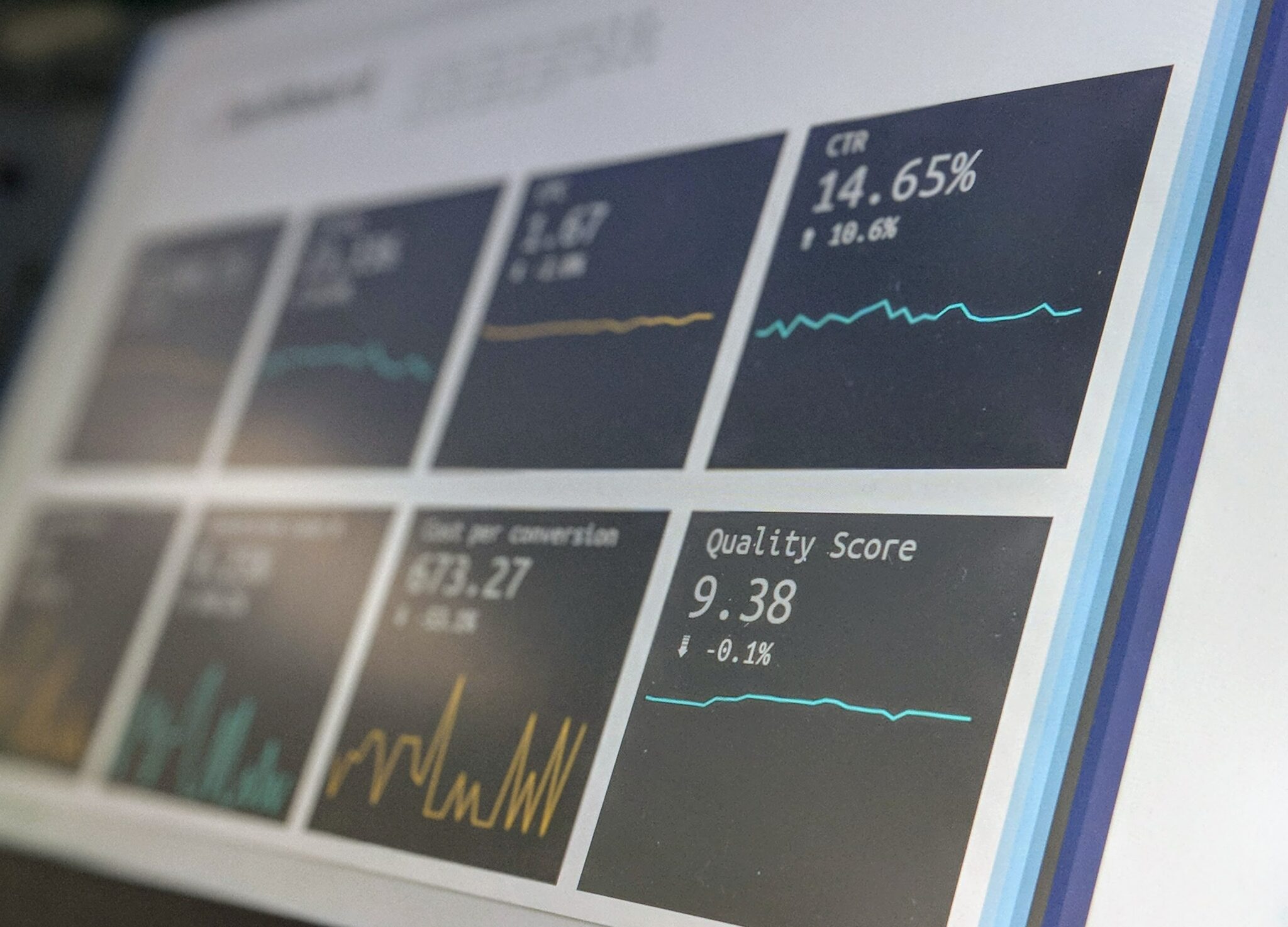Business analysts (BAs) are like force multipliers. They increase the organisation’s efficiency by identifying inefficiencies. Yet, the role usually carries a broader mandate. BAs must have various skills to execute their functions.
Photo by Campaign Creators on Unsplash
A business analyst’s main job is to gather information and then analyse it to find errors, patterns, and trends that can add value to a business. The role of diversity comes from a wide variety of functions. For example, BAs in sales and marketing might consider consumer preference to spot the need for a new product. At the same time, BAs in operations might focus on bottlenecks and waste.
BAs can be both generalists and specialists, depending on where they are working. They must be flexible, analytical, and good communicators. The following sections examine the academic requirements for BA roles. They also cover professional certifications and soft skill requirements. For an in-depth look at a business analyst job description, please visit the following article.
Academic Qualifications
An undergraduate or bachelor’s degree in a related field is usually required. What makes up a related field can be subjective. BA roles differ from industry to industry and even from company to company. Some BAs can focus on finance, others on operations, and others look only at IT projects.
BAs’ academic requirements can also vary due to this variation in job requirements. Yet, normal education includes classes that emphasise modelling, technology, analysis, and numeracy.. Business degrees are common and preferred, although other analytical techniques can also work. A Master’s Degree in a relevant field would further add value to a business analyst’s CV. Next, we will cover quite a few professional certifications.
Photo by Alexander Tsang on Unsplash
Certifications
There are various certifications applicable to the business analyst profession. The International Institute of Business Analysis (IIBA) offers many of these.
The Entry Certificate in Business Analysis (ECBA) is ideal for students and newcomers starting their careers. They are looking to get their foot in the door in an entry-level role. The certification provides a basic understanding of enterprise change management and business processes. It also covers designing and deploying solutions.
The Certificate of Capability in Business Analysis (CCBA) is the next level. It’s designed for professionals with 2–3 years of relevant experience. The course is suited for individuals with a basic understanding of how business processes work and how to test them. CCBA focuses on real-life cases and can make for a strong CV point for those looking for career advancement. For more tips on creating a CV for a BA role, see the following article on BA CVs.
The IIBA offers many advanced and specialised certifications as well. The Certified Business Analysis Professional (CBAP) is for seasoned professionals. They must have more than 7,500 hours of prior BA experience.
Some, like the Agile Analysis Certification, are for business analysis in agile work environments.
Such certifications are not designed for newcomers. Instead, they highlight the potential for career growth and specialisation in the field. Specialists are almost always sought-after and get paid more.
Besides IIBA, many other organisations offer professional business analyst certifications. The Project Management Institute offers the PMI Professional in Business Analysis (PMI-PBA) certification. It’s designed for somewhat experienced business analysts.
Photo by Kaleidico on Unsplash
Work Experience/Internships
Internships are a great way to get your foot in the door for business analyst roles. Companies usually have internship opportunities publicised via campus boards or company websites.
The purpose of these internships is to allow firms to test the performance of the candidates. The candidate works for the company in some capacity.
A written test, interview, or even references will not provide such an endorsement. It also allows the candidate to check if they fit the work environment and like the role.
Good BA roles need some prior work experience. Fortune 500 companies will either look for 2–5 years of previous work experience or select candidates from top universities. They will evaluate them through an internship programme.
Candidates looking for such roles should spend a few years learning as much as possible about these roles. They can work with smaller companies or explore internships with larger ones.
What are the Goals of a Business Analyst?
Business analysts aim to increase customer and employee retention and minimise costs.
Business analysis goals often have specialised systems development elements. A business analyst in IT technology specialises in building or maintaining computer systems. Most analysts have relegated IT to an extensive portfolio of deliverables.
Unsplash+ In collaboration with Getty Images
Business Analyst Job Description
Business analysis is becoming a critical business practice for the IT and business sectors. In some cases, it refers to a comprehensive assessment of changing needs. It also involves documenting and facilitating communication between stakeholders.
Its active contribution helps the organization be profitable. It also helps with sustainability. Analysts assist companies in improving their processes and the services they offer.
Technical competence, method knowledge, and business-industry domain knowledge are all required.
Business analysts need essential skills. These include data analysis, software skills, and documentation. BAs need to learn how to work with Microsoft Excel and Tableau. More information on the business analyst job description is here. As a business analyst, varied responsibilities include the following:
Critical Thinking
Business analysts check various solutions before they help the teams find the best solution to the issue. Business analysts must listen to the stakeholders’ needs. They must also consider those needs when determining which problem to solve.
Assessment and critical thinking are crucial when dealing with a new business analyst.
Photo by Stephen Dawson on Unsplash
Analytical Mindset
As the name suggests, BAs need an analytical problem-solving approach. What differentiates a great BA from a good one is their ability to examine the information and make better analytical judgments.
IT Skills for Business Analysts
You must be able to solve critical IT problems that impact your organisation’s success. Businesses may deploy IT services more frequently. They can do this by working with staff to identify the best IT solution for certain tasks.
A bachelor’s degree in information technology is essential. Three years of experience with computer programmes is also essential.
You will have excellent writing and oral skills, and it will be necessary that you have experience with a data analysis programme.
Technical Skills
First, we must know how to analyse business data. This is the technical ability to support an organisation in solving problems and finding solutions.
This analysis assists departments with improving procedures and processes. It also involves analysing policies, systems, and processes. Then, it makes appropriate and required recommendations based on the benefits to the organisation. It improves efficiency and reduces expenditures.
Probability and Statistics
Business analyst skills include the ability to recognise probability and statistical probability. Statistical and probability methods will help the business analyst read data. They will find answers based on the available information.
All business analysts must understand the data. They must make accurate predictions using statistical and probability techniques.
Programming Skills
Programming is essential to becoming a business analyst who uses relevant code or data. These skills are fundamental.
Being Able To Run Meetings With Stakeholders
Email communication has become a common practice for many years, and this protocol is currently in force. Still, there may be better solutions than this.
Discussing a client issue face-to-face is also a great way to solve a problem. Thus, the organisation of meetings is an essential skill for business analysts. Usually, an executive can better understand a task or question face-to-face.
Unsplash+In collaboration with Getty Images
The Ability To Spot Patterns
BAs spend a lot of time reviewing spreadsheets and trying to find patterns suggesting a clear trend. For example, is the department suffering because a task creates a bottleneck?
Can efficiency be improved by changing the procurement strategy for some components? Does market research suggest a changing preference among consumers? The broader industry still needs to recognise it.
Business analysts can add value to their businesses. They do this by spotting these patterns and suggesting enhancements to address them. There is no limit to how valuable such insights can be, which allows BAs to outshine others.
The Ability To Drive Others
Being driven is a critical skill in business that applies to every role. Yet, the ability to guide others to achieve your goals is even more crucial for specific functions.
Business analysts rely on data and insight from other departments. They must spend hours in meetings, over calls, or sending out emails to gather data. The data is numerical and can also consist of subjective assessments.
This reliance on others means that BAs’ must be friendly and can get what they need from others. Their success depends on it.
Creative Presentation Skills
The analysis will only be worth something if it is presented to the people who must act on it. Top management, department heads, and others use business analysts’ insights. They rely on them to drive efficiency. They also spread these efficiencies throughout entire departments.
They must be able to present information. They must make essential items stand out. They must make potential improvements quantifiable and measurable.
Good Listening Skills
Listening and absorbing information is critical for becoming an excellent business analyst. When analysing data to determine the need, these skills are essential.
A reader should understand both the purpose of the speech and its context. For example, the objectives, motivation, and conditions when spoken. Business analysts must also observe tone and facial expressions to make sense of the message and communicate.
Photo by Riccardo Annandale on Unsplash
Ability To Understand Delegated Objectives
The business analyst should understand their goals in their work. Upper and middle managers communicate as much as they feel is necessary. But most often, it is a brief outline of their needs, which may give you a vague sense of what requirements you need to fulfil. Analysts need to transform the shape into the best understanding that the idea needs. For example, the business analyst should know when the analyst talks about using a software tool. This tool aims to simplify the business process and maximise productivity.
Interpretations are an extension of these skills. The management or technical staff must understand all the requirements. In some situations, the information accompanies many gaps that the analyst must know about and complete.
During any difficulty, a person can never stop asking relevant questions. Quick and efficient comprehension of complex situations makes for excellent analytical tools.
Modelling Skills
Modelling skills are a core need for any BA job. An analyst might spend most of their day modelling. Their skills can affect their performance.
Yet, it is a skill usually developed over time while doing the job, and a few courses can help hurry the learning process.
Understand Why You Are Looking
It’s easy for business analysts to understand the reasons behind doing something. How can I determine what’s wrong with a business exam, and how can we help improve its effectiveness?
Documenting and Writing Reports
A company analyst must write about many subjects. They include preparing reports, planning documents, and conducting analyses. Understanding when a specific text is technical is critical for valuable reports.
This skill combines writing and understanding communication parameters. These parameters include the audience for your message and the reader. Writing is an essential skill in an analysis firm.
Business Knowledge and the Soft Skills To Acquire It
Business analysts focus on various business functions. They can do their jobs well only if they understand how those functions work. Acquiring such experience can be done through on-the-job learning. Still, it will usually require a curious mind and the ability to probe others for information in a non-intrusive way.
Business analysts who can get such insights from domain experts and use them in their analysis will add much value to their research. They will also reap the rewards.
Photo by Kaleidico on Unsplash
Is Coding Required for business Analysts?
Learning to code can be helpful. A business analyst can handle this. Yet, they must have the requisite skills in statistical software like SAS, SPSS, Sage, Maths, and Excel.
Is SQL Required for Business Analyst?
Most business analyst jobs need SQL skills and knowledge.
Business Analysis Tools
As an experienced business analyst, basic office skills like Excel and Word are obligatory for entry into this profession. Microsoft Visio is also an excellent visualisation application.
Other skills include using advanced modelling tools. Also, enterprise architecture requirements management tools such as DOORS or Calibre. And various software to manage a project or defect situation.
What Techniques Do Business Analysts Use?
Business analysts frequently use techniques like brainstorming, CATWOE, MoSCoW, Pestle, and business process modeling (BPM). They also use MOST. MOST stands for mission objectives, strategy and tactics, and SWOT.
Other Analyst Roles
System Analyst
A systems analysis specialist examines software and hardware as a business solution for a company’s needs. A system analyst translates requirements into the new system and uses these to test its efficiency.
Data Analyst
A data analyst interprets and analyses data to identify problems that need solving. Data analysts can put in place data management tools and data analysis tools. Besides pattern recognition, the analyst will analyse complex data sets.
Are You Ready To Become a Business Analyst?
Business analysts are prominent worldwide. There is a significant need for their expertise to improve business operations.
We hope this article has given you a basic knowledge of the qualifications and skills required to be a business analyst. We have explored the non-technology/soft skills and the technical skills required.
To learn more about a business analysis career, please visit our resources page or search for business analyst roles here.
Job Seekers
On the hunt for your next role? Upload your CV below and we’ll be in touch to discuss your requirements.
Employers
For employers seeking the right skills and cultural fit for your business, send us your vacancy to find out more about how we can help.
Submit CV Send Us Your VacancySearch Jobs
Popular this week
- What Qualifications And Skills Are Needed To Be An Accountant?
- How Does Industry 4.0 Differ From The Previous Generation?
- Agile For Accountants: Six Steps To Provide Necessary Tools And Relevant Processes
- What Are The Main Differences Between ACA and ACCA?
- What Are The Top Five Financial Accounting Facts For #AccountantsDay







